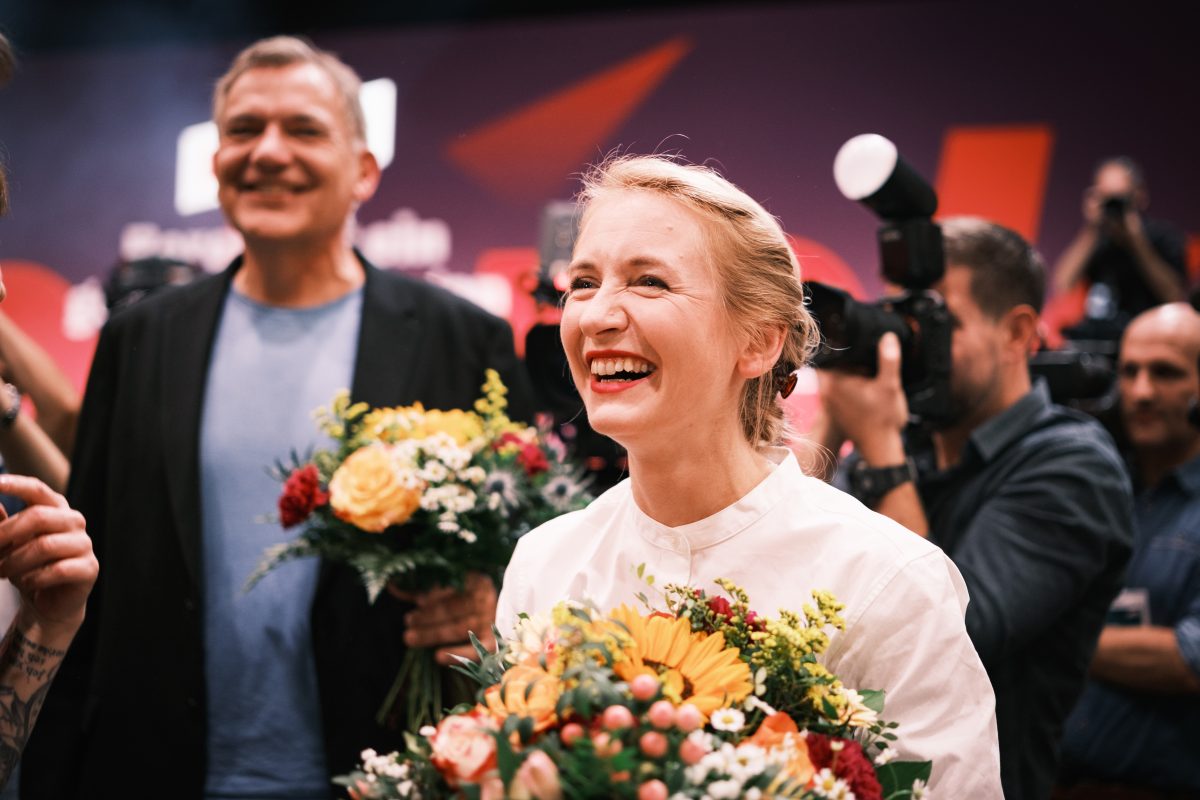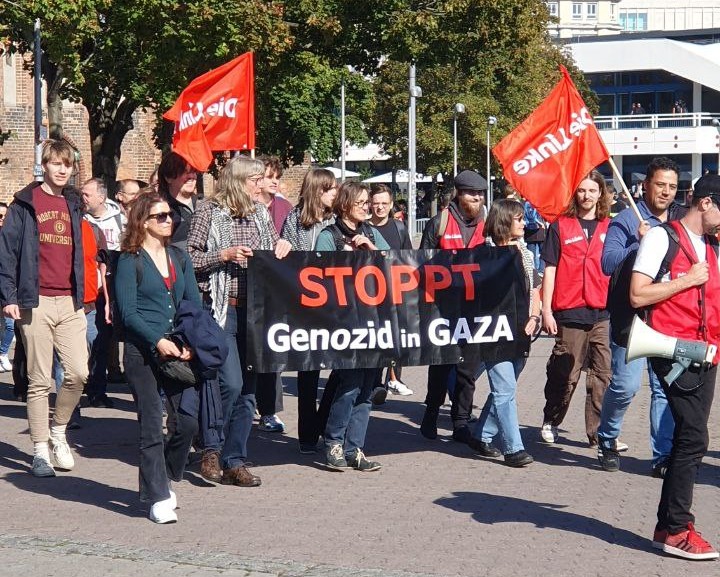While die Linke sustained gutting losses in Germany, and achieved only 14% in Berlin in Sunday’s elections, in Graz, Austria’s second largest city, the KPÖ (Communist Party of Austria) became the largest party and will lead the next city government. Elke Kahr, the chair of the KPÖ, will most likely become the city’s mayor, ending the 18-year tenure of Siegfried Nagl and the conservative ÖVP (Austrian People’s Party). The KPÖ surged from 20% to 29%, while the ÖVP lost 12% and its right-wing populist coalition partner, the FPÖ (Freedom Party of Austria) also lost a significant proportion of its vote share. This, in a country where the communist party gets barely 1% at the national level.
Concrete politics and a commitment to housing
Although the scale of the victory was a surprise, for many in Graz the rise of Elke Kahr was not. The communist party has steadily gained support in the last few elections, garnering 20% of the vote in 2012 to become the second largest party. For nearly three decades, the KPÖ has pursued a very concrete politics, focusing on the issue of housing and helping tenants in tangible ways. Despite never being part of the ruling coalition, the KPÖ has held executive roles in the city senate since 1998 and has gained a reputation for protecting tenants and social housing. This began in the early 1990s, with Ernest Kaltenegger, chair of the Graz KPÖ and Housing Councilor, who established an emergency hotline and legal counselling for tenants. He paid two thirds of his salary into a social fund with which the KPÖ could then provide unbureaucratic, direct help to tenants facing social emergencies. This was in response to aggressive tactics used by property developers trying to clear houses of tenants to make way for renovation and speculation with properties.
Alongside setting up the tenant’s emergency hotline and providing financial support, as housing minister Kaltenegger also carried out the renovation of substandard social housing. In 2004, around the same time the Red-Red (SPD-Linke) government in Berlin privatized swathes of its housing, the KPÖ managed to block the privatization of Graz’s public housing stock. They did this by gathering more than 10,000 signatures for a petition against privatisation and putting the question to a referendum. When 96% of the population voted against selling off the housing units, the topic of privatising public housing was not brought up by any party again.
Another reason for the groundswell of support for the KPÖ this election was the building frenzy in the past few years. Siegfried Nagl, the conservative ÖVP mayor of 18 years, has come to be known as ‘cement Sigi’ (Beton Sigi) because of his friendly relationship towards investors and his approving numerous construction projects on green spaces in the city. This has led even steadfast ÖVP voters to switch their vote this election.
Credible politicians, a politics from below
Elke Kahr has been involved in municipal politics in Graz since 1993. Over this time she has established herself as a credible politician, genuinely committed to helping people in tangible ways. She is known for her open office hours in which she provides practical support, whether legal advice, help filling out forms, or even direct financial assistance. As Ernest Kaltenegger put it, Elke Kahr is interested in ‘helping not talking’, she has never had a spin doctor because ‘she doesn’t need one’. Rather, she is in constant contact with the people she serves and demonstrates in practical ways that you can help people in their everyday struggles.
Robert Krotzer, second on the KPÖ list this election and head of the Department of Health and of Caregiving since 2017, has taken a similar approach to governing. During the pandemic he worked with grassroots organizations to set up a telephone chain to spread information to vulnerable and hard to reach communities (such as the elderly and migrant communities) and find out what they needed. Based on this, the KPÖ then provided concrete support, such as connecting isolated people with shopping services, providing them with grocery vouchers and even buying rapid antigen tests out of their own pocket to distribute to care homes when the central government failed to make these available.
Like all party functionaries of the KPÖ in the city senate and the Styrian parliament, Kahr gives away the majority of her salary to people in need, keeping only 1,800 Euros a month to live on. Over the course of her political career, she has given away 900,000 Euros. Krotzer described this practice not as charity, but rather a commitment to understanding the people they serve. In an interview in Jacobin, he said ‘I think it’s hard to speak genuinely empathically with someone who works full time for €1,200 a month, when you earn three, four, five times that much. After all, as Marx said: Being determines consciousness.’
Building a politics from below, working with activist organisations and providing tangible support, especially on the issue of housing, is a model that could be emulated by the Left in Berlin as well. Despite missing out on direct election, the campaigns of several Die Linke activist candidates in Berlin, such as Elif Erlap in Kreuzberg and Lucy Redler in Neukölln made huge gains because they were rooted in the communities around them and spoke directly and radically to the needs of these communities.




